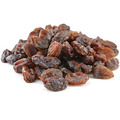Find the diet to keep the weight off: the results
It's impossible to cover all the options, but here's a sample of the best on offer...

Low GI plans...
...such as Rosemary Conley's and South Beach focus on cutting fat and reducing the overall glycaemic load (GL) of your diet, so you feel fuller for longer.
Pros: Healthy, nutritious and easy to incorporate into your current diet. As they are sustainable, these plans (including the Mediterranean diet) are associated with good levels of weight maintenance. Weight loss is slow (1-2lb per week) but you shouldn't feel hungry and you may also reduce the risk of type 2 diabetes and improve levels of good cholesterol.
Cons: It takes time, you need to get your head around GI eating and if your overeating is more about comfort than hunger, this type of diet won't help.
Read up on the GI diet
Low-calorie meal replacements...
such as LighterLife, Weight to Go and Slim.Fast replace regular meals with low-calorie shakes, bars, soups and ready-made meals. LighterLife provides counselling, Weight to Go telephone support and Slim.Fast emailed tips.
Pros: Rapid results that help boost your motivation. Counselling is supportive, and the ‘break' from food can help you to rethink eating habits.
Cons: Expensive (can be up to £70 weekly) and best for people with lots of weight to lose. Despite publicity about health concerns, including heart problems and depression, none has been directly linked with very low-calorie (VLC) diets. It may be hard to readjust to normal eating and you will need to retrain your eating habits as there is a high chance of regaining lost weight quickly once the diet is stopped. VLC diets can cause tiredness, weakness, nausea, dry skin and hair loss. Very rapid weight loss may increase the risk of gallstones.
Dieting support groups...
...such as WeightWatchers, Slimming World and Rosemary Conley offer healthy-eating weight-loss plans with weekly support, which lasts even after losing weight. There are also online support groups such as Weight Loss Resources.
Pros: Support from a trained leader and other dieters. No foods are banned and the diet plans take the sweat out of counting calories or grams of fat.
Cons: It can cost quite a lot and you have to make a weekly commitment.
Low-carb diets...
...range from virtually no carb, high protein plans like Atkins, Scarsdale and Stillman, to the Zone diet (‘good' carbs and no saturated fats). They're based on the premise that a low carb intake forces your body to use fat stores for energy.
Pros: Promise, and deliver, rapid weight loss in the short term.
Cons: Concerns about the implications of a very low fruit and vegetable intake, and the heart health implications of replacing carbohydrates with fat and protein - although there's no evidence that low carb diets are dangerous. High chance of regaining lost weight once diet is stopped.
Low-fat diets...
...such as the Mediterranean diet - fruit, vegetables, legumes, grains, moderate amounts of white meat and fish - emphasise good health, particularly heart health, rather than weight loss, but have been shown to help with losing weight. The Total Wellbeing Diet- calorie and portion controlled low fat, higher protein and moderate carbs - is based on the theory that protein-rich foods help you feel full and keep hunger at bay.
Getting started
■ Mark a start date and stick to it.
■ Enlist the support of friends and family.
■ Set yourself achievable weekly targets.
■ List your reasons for dieting and put them where you can read them every day.
■ Plan your exercise. Start small and build up gradually.
Keeping going
■ Photograph your food (use your mobile phone) to help you check portion sizes.
■ Expect setbacks. If you slip, be kind to yourself, focus on positive achievements, and get back on course the next day.
■ Keep exercising - the latest research suggests that short intense workouts may be most effective for weight loss.
7 rules for keeping it off
The largest, longest-running study of successful dieters, the National Weight Control Registry, tracked the progress of more than 5,000 people (mostly women) who lost an average of 66lb and kept it off for five and a half years. So, how did they do it? Research shows successful maintainers have undergone a kind of inner transformation, reinventing a new self that is different from the old, overweight one - and the key components seem to be a shift in mindset and habits.
Develop the mentality of a maintainer
■ Get organised. Schedule your week's activities, reorganise your wardrobe, file your papers, plan the week's menu. Researchers found that it was the people who were structured and disciplined in their approach to life who were the most successful at keeping weight off.
■ Do something empowering that symbolises the new you. It may be taking up something you never thought you would be able to do - running a marathon, changing career direction - or just paying attention to your own needs by making time for meditation or yoga.
■ Get the right habits. Weigh yourself at least once a week to notice any gains and cut down before they escalate. Research shows that people who abandon regular weight checks are more likely to overeat.
■ Keep moving: 90% of successful maintainers exercise for an hour - yes an hour - every day.
■ Keep your eye on the ball. At ‘food overload' times like Christmas and holidays, maintainers paid even more attention to what they ate, took regular exercise and checked their weight.
■ Eat consistently - successful maintainers don't skip meals or binge at weekends.
■ Stick to a low-fat, low-calorie diet. The good news is that the longer you do it, the easier it gets. People who managed weight maintenance for two to five years were far more likely to keep it off for good.
You might also like...
Six surprising reasons for overeating
How to to stick to your healthy eating plan
100+ diet recipes: delicious main courses and desserts










